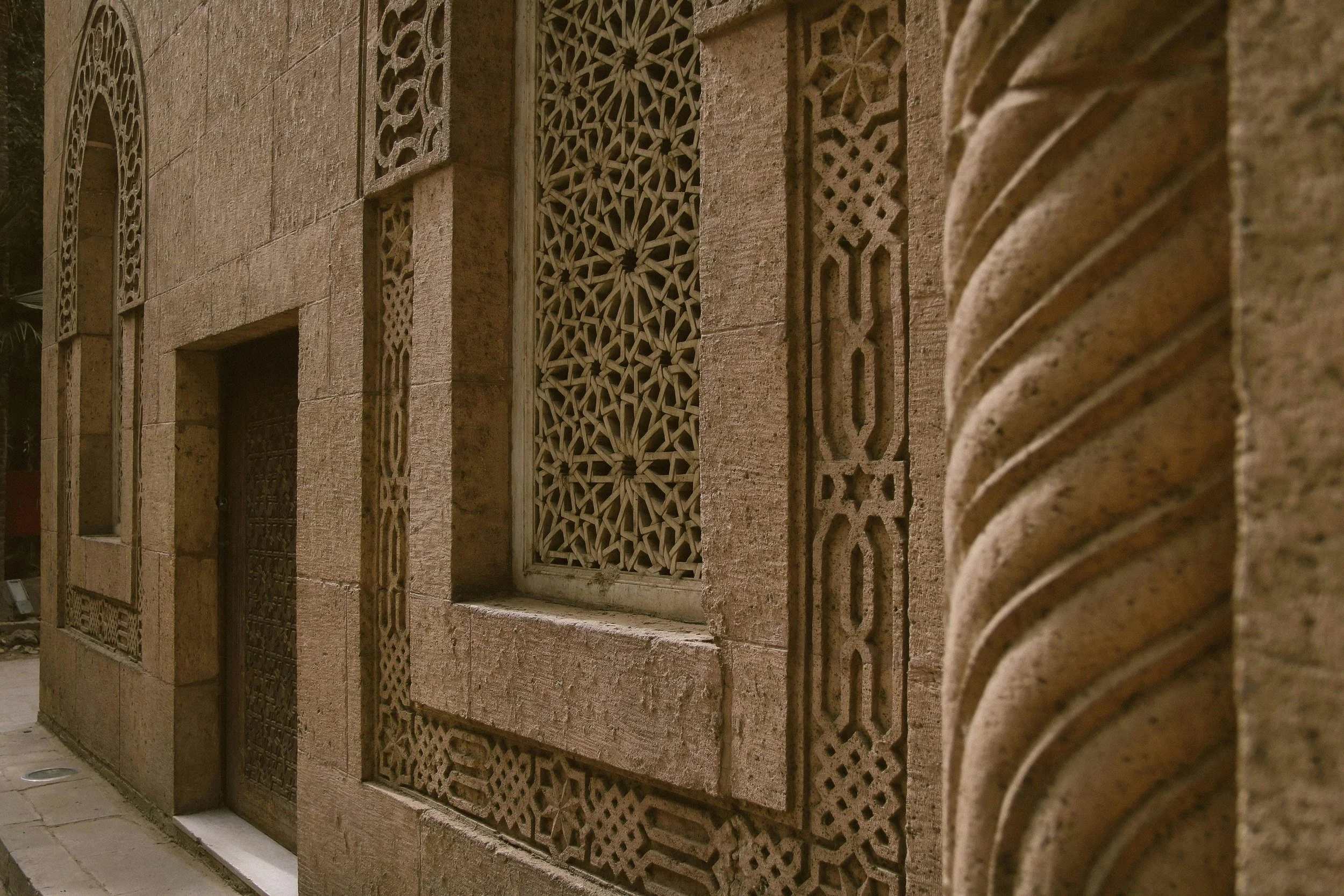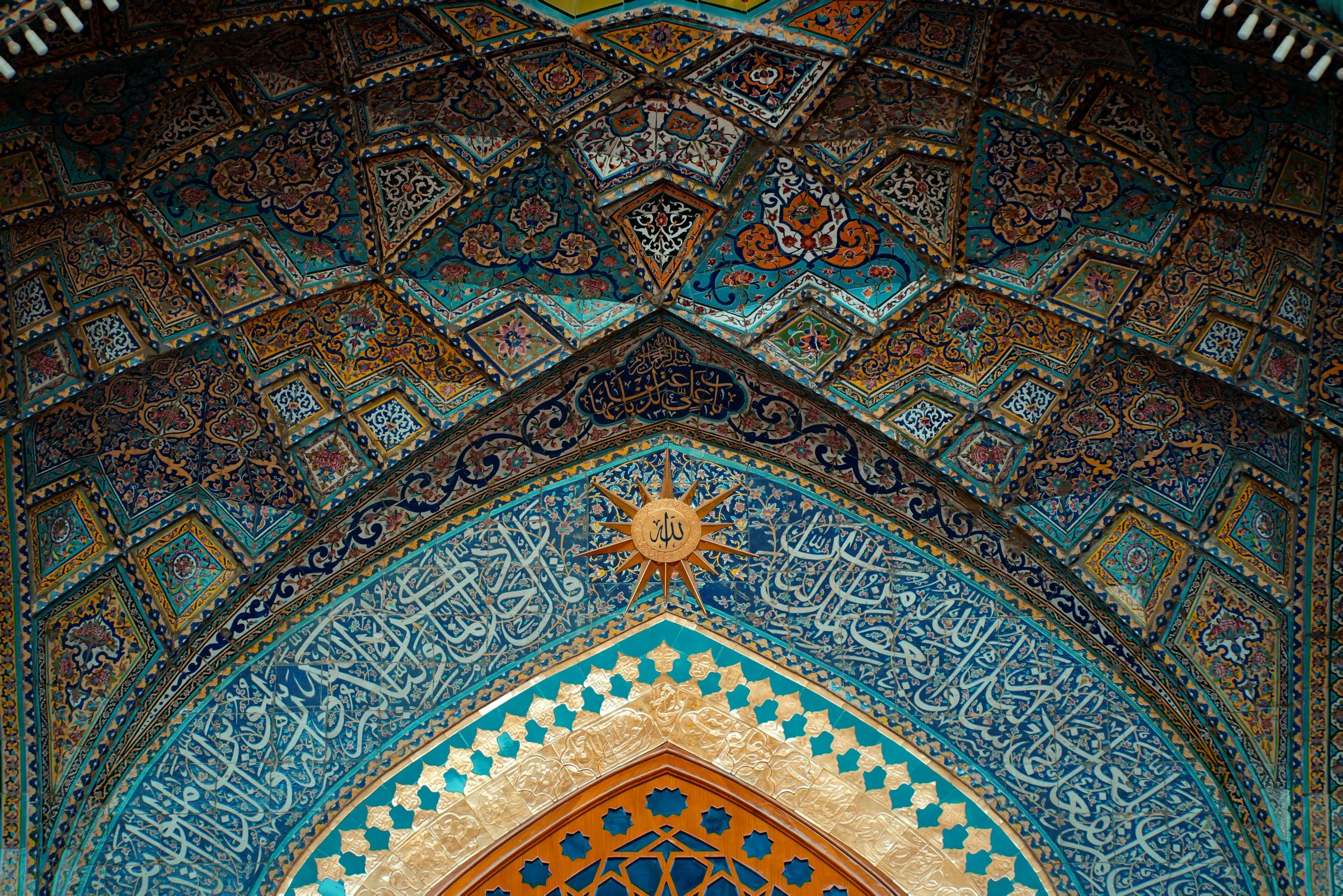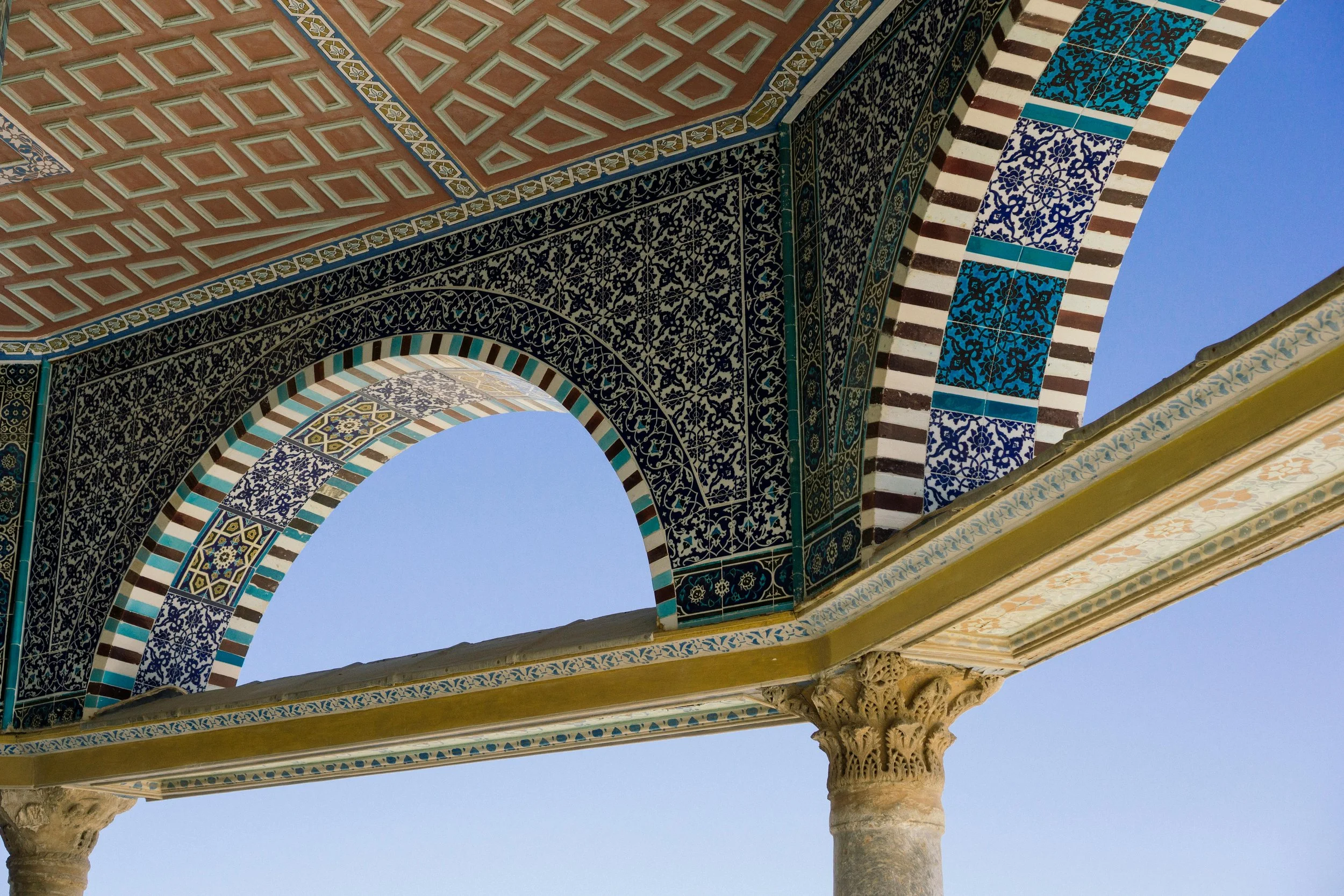Course Catalog
The Ḥikmah Center Fall 2025 course offerings will be determined by the Fall 2025 Interest Form. Below is a tentative list of courses, five of which are featured with detailed information. There is also a list of other possible course titles that you can select on the interest form. Course offerings will be finalized based on the results of the interest form in early August, in shāʿ Allāh.
[Note that not all courses require Arabic reading fluency.]
Featured Tentative Courses
-
Course Description
The works of Plato offer an accessible and enjoyable way to begin thinking critically about one’s life. This course takes after Socrates’ famous saying, “The unexamined life is not worth living,” and gives participants an opportunity to reflect on such questions as, “Can someone learn to be a good person?” “What are beauty and love?” “How do we know what knowledge is?” “What is the soul?” and many, many more. Plato’s writings facilitate the exploration of these questions because they are written in the form of dialogues, with various philosophical positions being embodied by the characters of each dialogue. As we read the dialogues, we become aware of different ways of answering these fundamental questions and, by extension, different ways of approaching life.
The course uses the dialogues between Plato’s characters as a launching pad for a dialogue between students themselves. The method of this class is not a lecture. It is an extension of the dialogue that Plato has started. After an opening question from the instructor (usually one that Plato himself is asking), students speak freely among themselves without raising their hands. The instructor guides the discussion through questioning and prompting students to challenge their own assumptions. There is no fixed course or conclusion to these conversations, and they often diverge and meander through other topics before returning to the original question. At best, these conversations lead to a collective realization among everyone in the group; at least, they enable students to have a deeper appreciation of the dimensions of the question.
In addition to offering students an opportunity to personally explore the fundamental questions of life, this course also familiarizes students with one of the most important philosophers of the Western and Islamic traditions (yes, both). There are few philosophers who have exercised such a decisive influence on the subsequent path of philosophy. From Stoics like Epictetus, to Christians like Aquinas, to Muslims like Fārābī, to Germans like Nietsche, Plato is and will remain an interlocutor in the philosophical conversation. Students who wish to pursue further studies in philosophy will greatly benefit from this familiarity with Plato.
Course Duration—Two semesters
Course Objectives—Student will:
have a deeper appreciation for their own views (or lack of view) on life’s most fundamental questions,
be conscious of the considerations that drive people to adopt various philosophical positions and understand the pros and cons of each position,
be able to engage in conversation about fundamental philosophical questions with compassion, sophistication, and control, and
be able to detect the philosophical perspectives underlying ideas and messages that are not explicitly philosophical.
-
Course Description
Formal logic is the science that prevents us from making mistakes in our reasoning. It protects us from using vague terms, false premises, and fallacious arguments and from falling victim to these mistakes when we hear them from others. When we are tricked by fallacies, we end up harboring false and inconsistent beliefs while thinking that we know what we do not know. In order to avoid this, students of logic study the principles of valid conception, assent, and reasoning. By applying these principles to their own ideas and those of others, they are able to filter out the distracting fallacies around them and pursue the truth with clarity and validity.
Moreover, Islamic scholarly texts adhere invariably to the rules of formal logic, and they are replete with the Arabic logic terminology that students will learn in this course. A study of formal logic in Arabic is, therefore, indispensable for accessing the texts of the Islamic scholarly tradition.
This course introduces students to the Arabic logic tradition (manṭiq) through a close reading the Mirqāt of Faḍl-i Imām al-Khayrabādī (d. 1827-8). Khayrabādī was a leading scholar of the rational sciences (al-ʿulūm al-ʿaqlīyah), and his Mirqāt represents the culmination of logic primers in the Avicennan tradition. Students will learn the main terms of the Arabic tradition of formal logic in its broad division into concepts (taṣawwurāt) and propositions (taṣdīqāt). We will draw on supplementary material from the greater Arabic logic tradition as well as material from the Western tradition to further our discussions.
Course Duration—One semester
Course Objectives—Students will:
be able to recall the terminology, concepts, and rules of logic as described in the Arabic-Islamic tradition,
be able to create their own definitions and syllogisms and to demonstrate their formal validity through the application of logical terminology and principles,
detect, identify, and refute formal and material fallacies,
understand the ways in which an argument that is valid formally may still remain inconclusive materially, and
understand the ways in which someone may still disagree with a formally valid argument and how someone may respond to this disagreement.
[Prerequisite: Arabic reading fluency recommended]
-
Course Description
Kalām is the science dedicated to the establishment of Islamic doctrines through demonstrative proofs and refutation of objections. After laying the metaphysical and epistemological groundwork for the defense of Islamic doctrine, kalām then seeks to prove the existence of God and to explain the nature of His attributes. Beyond this basic theology, which applies equally to all monotheists, kalām goes on to establish the prophethood of the Prophet Muḥammad ﷺ and thereby to distinguish Islam from other monotheistic religions. Lastly, kalām also addresses debates that took place within Muslim circles about, for example, the nature of the Qurʾān, free will, and the beatific vision of God in the afterlife. In this way, studying kalām involves a movement from the most extreme disagreements about metaphysics and God’s existence to the smallest minutiae of intra-Islamic polemics.
This course explores kalām through the Sharḥ al-ʿAqāʾid al-Nasafīyah, Saʿd al-Dīn al-Taftāzānī’s (d. 792/1390) commentary on Najm al-Dīn al-Nasafī’s (d. 537/1142) matn on Islamic creed. This is one of the most important textbooks in the postclassical Islamic world, in the Ottoman and Mughal empires in particular. An awareness of its contents is indispensable for engagement with Islamic theology.
As a guided reading, the course focuses on analyzing the text of the Sharḥ al-ʿAqāʾid itself with only that degree of commentary necessary to bring students into conversation with the author. Class sessions will include, first, a reading and translation of the text by the instructor and, second, a brief commentary on the grammatical and logical structure of the text. After this didactic portion of the session, students are encouraged to ask questions and discuss the ideas of the text with both the instructor and themselves. The purpose is to familiarize ourselves with the text and to use this familiarity to bring the conversation of kalām to life in the classroom.
Course Duration—Two semesters
Course Objectives—Students will:
be familiar with the logical structure of kalām theology from the refutation of sophistry to epistemology to natural philosophy to theology to prophetology and finally to revealed doctrines,
be able to explain the kalām cosmological argument, the argument by correspondence, the argument by mutual incompatibility, and several other arguments important to the kalām tradition,
be familiar with the key areas of disagreement between the major theological schools in Islam, most importantly the Ashʿarīs, the Māturīdīs, and the Muʿtazilah,
be able to compare, contrast, and assess the arguments and counterarguments of these schools, and
be familiar with the structure, style, and content of the ʿAqāʾid al-Nasafīyah and its commentary by Saʿd al-Dīn al-Taftāzānī.
[Prerequisite: Arabic reading fluency required]
-
Course Description
This course is a study of selected passages from the works of the Proof of Islam Abū Ḥāmid al-Ghazālī. Ghazālī is a deep, multifaceted, and intimately relatable scholar of Islam. We will read his autobiography, the Deliverance from Error, where we will learn about Ghazālī’s own struggle with skepticism, his encounter with various Muslim groups, and his journey from the confusion to comfort. We will then explore Ghazālī’s metaphysics in the Niche of Lights (Mishkāt al-Anwār), his spirituality in sections of the Revival of the Religious (Iḥyāʿ ʾUlūm al-Dīn), and his advice to young people in the O Son! (Ayyuhā al-Walad).
The first half of each session will be dedicated to a summary and brief analysis of the assigned text by the instructor. The second half will be an open Q&A and group discussion.
[The texts for this course will be limited to those available in English translation.]
Course Duration—One semester
Course Objectives—Students will:
gain insights into the Islamic worldview that benefit their spiritual connection to Islam and enrich their relationship with Allāh,
discover the joy of reading Islamic literature, and the joy of reading generally,
develop a relationship with Ghazālī, his books, his approach to life as a Muslim, and the inner dimensions of his spirituality,
consider practical tips that can help them navigate the challenges on the spiritual path, and
be familiar with some of the main ideas that characterize Ghazālī’s thought.
[Prerequisite: Arabic reading fluency not required. Students who can read Arabic are encouraged to use the Arabic editions.]
-
Course Description
The Hidāyah of Burhān al-Dīn al-Marghīnānī is one of the most beautifully and intricately constructed texts in the tradition of Ḥanafī jurisprudence. The text is a dense and lush forest of definitions, syllogisms, and counterarguments. The purpose of this course is to assist students of Islamic jurisprudence in analyzing the grammatical and, more centrally, logical structure of this text.
As an applied logic course, the class will equip students with the logical terminology and analytical reading skills they need to dissect Marghīnānī’s famous text. At first, sessions will involve the analysis of perhaps only one argument or section of the text. Students will encounter new logical terminology and learn to identify key structural markers in the text, those little connecting words that you might miss if you are not paying attention. As the course progresses, students will become increasingly comfortable and fluent in this type of grammatical and logical analysis. The aim is for students to gain those skills they need to open the Hidāyah and read without the assistance of the instructor, for the instructor has only completed his job when he is no longer needed.
Course Duration—One semester
Course Objectives—Students will:
be adept at analyzing the structure of Marghīnānī’s text by distinguishing between the claims of the jurists (whether Abū Ḥanīfah, his students, or al-Shāfiʿī), their scriptural arguments, their rational arguments, and the refutations of each of these,
be able to apply formal Arabic logic terminology to the Hidāyah, thereby enabling a critical engagement with the text and an assessment of the merits of its arguments, and
will understand the most common formal logical structures used by Marghīnānī in the Hidāyah.
[Prerequisite: Arabic reading fluency required]

Other Information
-
Other than the courses listed above, the Ḥikmah Center hopes (one day, in shāʾ Allāh) to offer the courses with the following titles. The Fall 2025 interest form contains a section for showing interest in these courses. They are listed in rough order of do-ability.
English Grammar and Rhetoric
Guided Reading of Ghazālī’s Incoherence of the Philosophers
Geometry through Euclid’s Elements
Arabic Grammar through the Sharḥ Qaṭr al-Nadā
Seminar on Aristotle’s Works
Seminar on the Muqaddimah of Ibn Khaldūn
The Philosophy of Ibn Sīnā through the Hidāyat al-Ḥikmah
The Philosophy of Mulla Sadrā through the Bidāyat al-Ḥikmah
Guided Reading of the Ḥikmat al-Ishrāq (the Wisdom of Illumination) of al-Suhrawardī
Medieval Philosophy: Neoplatonism and Christian Scholasticism
Hellenic Philosophy: Stoicism, Epicureanism, and Pyrrhonism
Modern Philosophy from Descartes to Kant
Theories of Secularism
Readings on Perennialism
Comparative Religions (Judaism, Christianity, Buddhism, and Hinduism)
-
The Ḥikmah Center operates on a 14-week semester basis with fall, spring, and summer semesters.
For each course, class sessions will take place once a week on a weekday evening or weekend and last for between two and two and a half hours with a break for prayer.
Class sessions are usually held in Richardson, TX, in person. Online class offerings are dependent upon the results of the Fall 2025 interest form.
As a general rule, students are encouraged to bring physical copies of the course texts and take notes with pen and paper. Group orders of the physical texts is a possibility.
Online office hours are offered to enrolled students once a week during the semester for all who wish to attend.
Students may enroll in as many or as few courses as they please.
Tuition will be $600 per course per semester, to be paid by the second week of classes. Discounts are offered for taking multiple classes. Need-based flexible pricing and payment plans are available during the registration process.
Ḥikmah Center offerings are for brothers only.
-
About
Jonah Rudolph is a philosopher and lifelong learner whose intellectual interests center on philosophy, logic, theology, and classical literature. He has experience tutoring Arabic grammar, translation, and textual analysis through works like the Mawqif al-ʿAql of Musṭafā Ṣabrī and the Tafsīr al-Jalālayn, as well as tutoring students reading Plato’s dialogues. His thesis is entitled “A Critical Verification of the Extent to which Modal Propositions Admit of Rational Division.” It offers an evaluation of the Arabic modal logical tradition and ways to improve the conceptual framing of this important subfield of logic.
Education
Jonah graduated from the Bayyinah Dream program, a one-year Classical Arabic intensive, in 2016. He then received his ijāzah in the Islamic Sciences from the Qalam Seminary, completing the ʿĀlimīyah program in 2020. He earned a BA degree in liberal arts and Islamic studies from Zaytuna College in 2024. During and after the completion of his formal education, he has placed himself under the tutelage of ʿAlāʿ al-Dīn al-Kāsānī (d. 587/1191), Plato (d. 347 BCE), Aristotle (d. 322 BCE), Abū Ḥāmid al-Ghazālī (d. 505/1111), and many others.

Culture & Pedagogy
-
In many ways, the Ḥikmah Center is an experiment in purposeful cultural craftsmanship. Each sphere of life has its own culture—the home, the school, the workplace, the coffeeshop. The Ḥikmah Center likewise has a unique culture. Discussants at the Ḥikmah center greet each other with, “What have you been reading recently?” rather than “Did you watch the game last night?” They speak about ideas rather than people or current events. And they seek to understand each other’s interior lives through reflection and compassion.
The Ḥikmah Center uses the title “brother” for all participants, including the instructor. This is because dialectic requires all ideas to be subject to the same level of examination. Ideas receive no special treatment because they happen to be the instructor’s. In order to represent this equality, titles like ustādh, shaykh, and muftī are not used, and all simply refer to each other as “brother.” This also serves to highlight the view that intellectual and moral excellence are not handed down from teacher to student but developed through the hard work of the student.
-
Attending courses at the Ḥikmah Center is more like attending a martial arts class than a movie. The movie-goer reclines and relaxes as the stimulus of the cinema washes over his senses. When courses are like movies, they become performances that students passively enjoy. In contrast, no student of martial arts expects to learn simply by watching the instructor perform the maneuvers. After a demonstration, students must get up, move, grapple, and eventually compete. The Ḥikmah Center’s pedagogy invariably focuses on student participation. Students spend as much time (preferably more time) speaking, conversing, and answering questions as they do listening to the instructor.
The martial arts analogy also applies to the Ḥikmah Center’s view on credentials and certification. The skill of a martial artist comes not from his belt but from his long years of training, for which the belt is only an approximate sign. In addition, no martial artist believes that he has completed his training, that he can relax, and that he will never lose his skill through lack of practice. Martial arts require consistent training. Likewise, the Ḥikmah Center offers no final certification; there is no “end” to the intellectual journey. Ḥikmah Center discussants continue to come and converse, sharpen their dialectical and philosophical fluency, and enjoy the company of the Ḥikmah Center’s intellectual community.
Lastly, the pedagogy of the Ḥikmah Center also resembles that of martial arts insofar as the martial artist’s worth is determined by his own skill. A pedigree of masters back to the founder of the art proves nothing if someone is a punching bag in the ring. Similarly, the Ḥikmah Center does not assign importance to scholastic pedigrees or religious chains of transmission in the absence of intellectual expertise and moral excellence as shown through dialectic and philosophical living.
The martial arts analogy does not apply, very importantly, when it comes to the spirit of competition. Only one fighter comes out of the ring a winner. Dialectic, on the other hand, is not about proving oneself better than anyone else. And philosophy, the third pillar, demands humility and eschews arrogance. The Ḥikmah Center is an inherently cooperative intellectual community.
-
In order to avoid untethered institutional growth, protect the small and intimate spirit of the Ḥikmah Center, and preserve the quality of education, the Ḥikmah Center observes the following limitations.
Class sizes are limited to no more than 20 students.
The Ḥikmah Center is to have no fundraising dinners, widespread advertising, or social media presence.
The Ḥikmah Center is to provide no certification, diploma, or other qualification which may threaten students’ sincere intention to better themselves or which may, by its public recognition, undermine the instructor’s duty to educate his students.
The Ḥikmah Center is to bestow no titles, such as ustādh, shaykh, or muftī, which serve to communicate one’s learning to others but which may become ends in themselves and undermine dialectic by creating authority.
